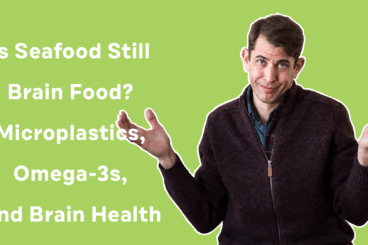EPA is a long-chained polyunsaturated omega-3 fat that is needed for proper brain function. It is used by your body to make potent anti-inflammatory compounds, keep blood vessels relaxed, and prevent blood clots. EPA is a like the Farmacy’s aspirin. You can make EPA from the omega-3 ALA found in plants, but not very efficiently. EPA is a proven treatment for clinical depression.
Low levels of EPA are linked to depression, suicide, diabetes, and heart disease.
Top Farmacy Sources: Fatty Fish (Sardines, Salmon, Mackerel), Shrimp, Oysters, Clams, Grass-fed Beef, Bison.




Thank you for your incredibly helpful website! My question is about how to obtain good amounts of EPA. I am allergic to shellfish, so no oysters, clams, shrimp for me. I love salmon. I have read that contaminants make farmed salmon not as safe, and I have also read that lake and river fish in the northeast US should not be consumed often due to pollution. My understanding is that wild salmon is the most nutrient dense and safest to consume – is this correct? I have not eaten red meat in about 30 years, but occasionally eat chicken and turkey, opting in recent years for organically raised/grass fed etc. I haven’t been able to bring myself to eat sardines or mackerel and am hesitant to because of my allergy to shellfish and other fish that I call “whitefish” : haddock/Pollock/cod/perch etc. If salmon is the best source for me, how many times a week is it safe to eat salmon?
Hi Karen –
Great question. I agree – pick wild over farmed salmon (best value is are frozen sides of wild salmon or canned). This and other fatty fishlike makeral, anchovies, and even trout are your best choices for a nice balance of DHA and EPA. I think 2-3 times a week is fine for wild salmon. The other meats you mentioned, ewven if they are pasture raised, are low in DHA/EPA. Also, I think you will find Eat Complete a great source for all this info on the fats and also some recipes that tell you how much long chained omega-3s you are getting. Would greatly appreciate your support and a comment on Amazon. Thank You!
https://www.amazon.com/Eat-Complete-Nutrients-Brainpower-Transform/dp/0062413430/ref=sr_1_1?s=books&ie=UTF8&qid=1457034789&sr=1-1&keywords=eat+complete